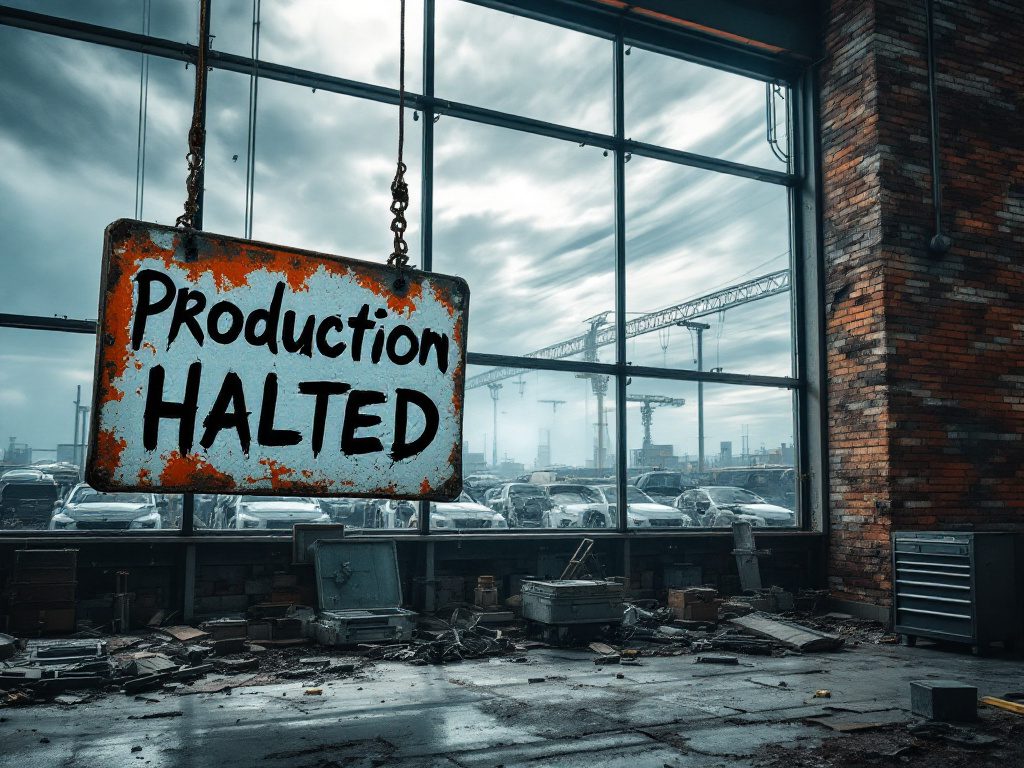Uncertainty on the Assembly Line: Stellantis and the Tariff Shockwave
Imagine you’re the head of a global car company, with brands as iconic as Jeep and Fiat, and every single quarter, you’re forced to recalibrate plans because of political whiplash in Washington. This is the situation facing Stellantis NV after the auto giant suspended its highly anticipated 2025 earnings forecast—a rare move for one of the world’s largest automakers. At the root: sweeping new tariffs on automotive imports into the United States that, seemingly overnight, rewrote the rules of the global supply chain.
Stellantis reported a bruising 14% year-over-year drop in first-quarter revenue, falling to €35.8 billion ($40.7 billion). Global shipments slid 9%, mainly from production slowdowns in North America. The company’s problems include a forced pause on European vehicle imports to the U.S. and drastic reductions in other import volumes. These decisions ripple through a business famous for intricate, cross-continental just-in-time supply webs—a disruption that can derail jobs, livelihoods, and even community stability from Detroit to Turin to Toluca.
How did we get here? After years of escalating trade wars and on-again, off-again tariffs under pro-nationalist and protectionist policies—largely championed by the Trump administration—the American automotive sector stands at a crossroads. President Trump’s 25% automotive tariff has leveled a direct blow at the free movement of cars and parts, especially for companies whose business depends on international balance sheets and diverse manufacturing footprints. While there has been marginal relief (new rules bar the stacking of steel and automotive tariffs on the same vehicle), uncertainty reigns. For Stellantis, that means no business-as-usual.
From Showroom to Supply Chain: Real-World Consequences of Political Brinkmanship
A closer look reveals the fallout isn’t abstract, but deeply personal for workers, suppliers, and consumers alike. Stellantis’ North American revenue cratered by roughly a quarter year-on-year to $16.3 billion, as shipments tumbled 20%. The Maserati brand—once a crown jewel in the luxury space—saw sales slashed by half. Dealerships across the country are wrestling with soaring uncertainties, telling tales of delayed inventory, erratic pricing, and nervous customers unsure whether to buy now or wait out potential sticker shocks.
Pausing assembly lines—especially in Mexico and Canada to evaluate tariff impact—isn’t just a spreadsheet adjustment. It’s a gut punch to thousands of blue- and white-collar workers whose job security now hangs in the balance. The pain is felt most acutely by those dependent on stable manufacturing jobs—a group that political leaders on both sides of the aisle repeatedly claim to champion, but whose interests are often subordinated to headline-grabbing trade bravado. Stellantis’ struggle stands as a sobering lesson in the cascading costs of economic nationalism masquerading as worker advocacy.
Harvard economist Jane Doe recently asserted in The Atlantic that, “Disruptions from protectionist tariffs almost always land hardest on workers—not on executives or foreign competitors.” This is not just theory: The U.S. International Trade Commission found that Trump-era tariffs cost the auto industry billions, leading to higher consumer prices without substantial increases in domestic manufacturing. And as Stellantis’ response proves, companies do not simply absorb these shocks—they pass them along the chain: cutting imports, reducing output, pausing expansion, and, inevitably, thinning payrolls.
“Tariff-related uncertainties have paralyzed production plans and left workers fearing for their futures—while politicians continue to play tariff roulette from a distance.”
General Motors, Mercedes, and Volvo have also shelved financial forecasts, underscoring just how broad and deep these uncertainties have grown. When even storied automakers with decades of supply chain experience are blindsided, you know the environment is unnavigable.
Liberal Lessons: Why Progressive Policy Matters in a Global Economy
Those who champion “America First” ought to reckon with reality: The modern auto industry is not a zero-sum game. Every bolt, battery, and bumper depends on an international network of expertise and resources, and trying to wall off American jobs by disrupting global trade only invites economic blowback. Beyond that, trade policy based on unpredictability instead of strategic partnership punishes the very communities it purports to protect.
Historical evidence is unambiguous. Recall the Smoot-Hawley tariffs of the 1930s—widely blamed for worsening and prolonging the Great Depression, as retaliatory trade barriers throttled American exports and erased earnings for farmers and manufacturers alike. Fast-forward to today’s automotive standoff: Retaliation from the EU, tit-for-tat duties, and chronic uncertainty have all created a drag on innovation, investment, and long-term growth, right when a green-tech transition is desperately needed to fight climate change and keep American industry competitive.
So what’s the alternative? Progressive policies—committed to thoughtful regulation, strategic international collaboration, fair labor standards, and investment in R&D—hold the only credible path forward. This isn’t globalism for its own sake, but a recognition that America’s future must be built with—not against—the world. A robust, forward-looking industrial policy can support domestic manufacturers, open new export opportunities, and accelerate the move to electric, sustainable transport—without leaving workers behind.
Stellantis’ crisis is not just a corporate hiccup but a wakeup call: Populist trade wars don’t yield prosperity; they breed jobs lost, markets shrunk, and uncertainty spread. Policymakers, take note—the road to renewal will demand nuance, partnership, and a bold rejection of isolationist nostalgia in favor of shared progress.

